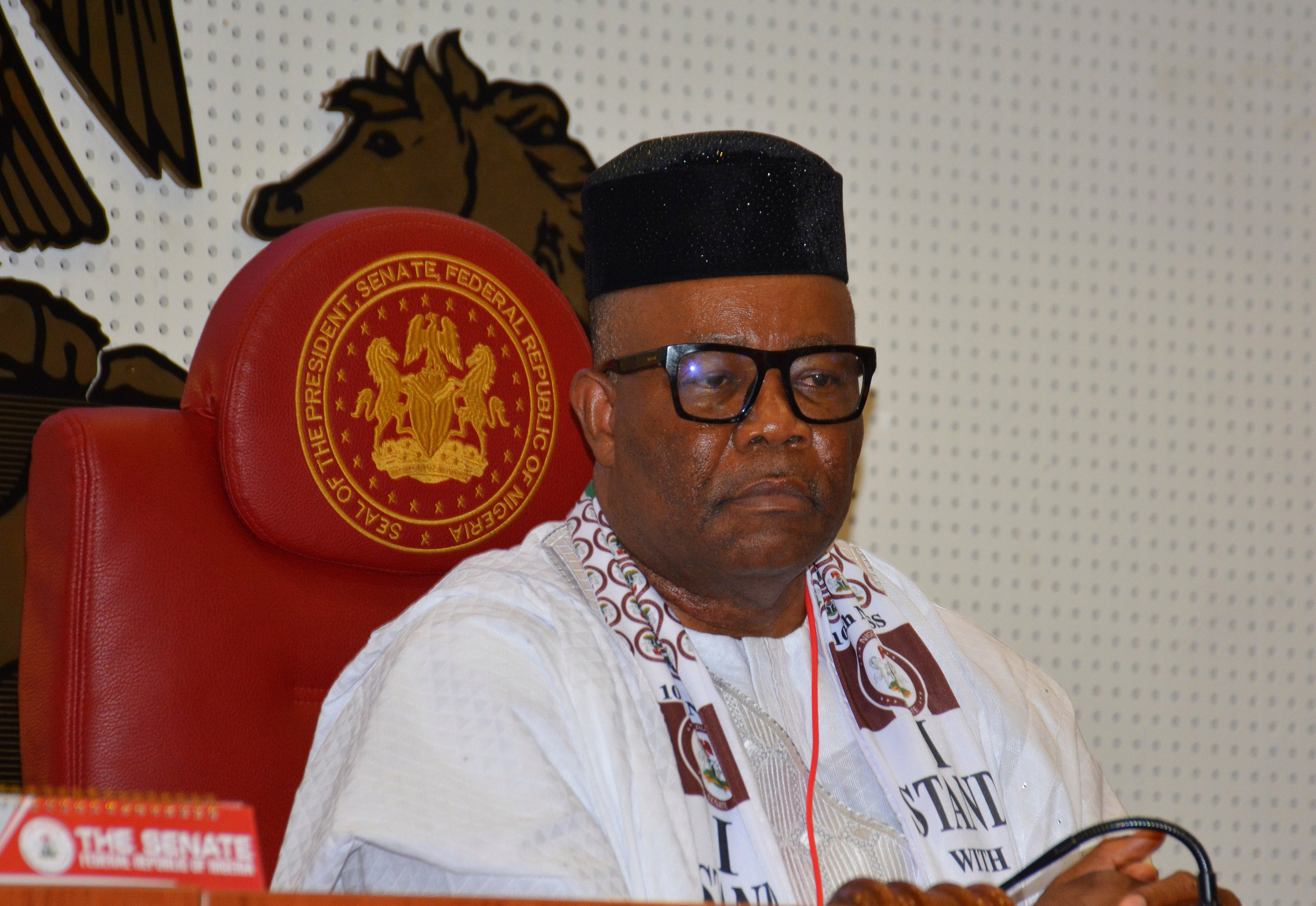Legislators from Nigeria's ruling party elected as Senate president, House speaker
Nigeria’s ruling party has retained leadership of the country’s parliament with the election of its consensus candidates as Senate president and speaker of the House of Representatives

Your support helps us to tell the story
From reproductive rights to climate change to Big Tech, The Independent is on the ground when the story is developing. Whether it's investigating the financials of Elon Musk's pro-Trump PAC or producing our latest documentary, 'The A Word', which shines a light on the American women fighting for reproductive rights, we know how important it is to parse out the facts from the messaging.
At such a critical moment in US history, we need reporters on the ground. Your donation allows us to keep sending journalists to speak to both sides of the story.
The Independent is trusted by Americans across the entire political spectrum. And unlike many other quality news outlets, we choose not to lock Americans out of our reporting and analysis with paywalls. We believe quality journalism should be available to everyone, paid for by those who can afford it.
Your support makes all the difference.Nigeria’s ruling party retained leadership of the West African nation’s parliament with the election Tuesday of its consensus candidates as Senate president and speaker of the House of Representatives.
Godswill Akpabio was elected to lead the Senate and Tajudeen Abbas was picked as House speaker before members of parliament who won February elections were sworn into the chambers, where the ruling party has a majority.
In a meeting with Akpabio shortly after his election, Nigeria’s new president, Bola Tinubu, pledged to work with lawmakers “to change the fortune of our country for good.”
“We can only achieve all the good things we promised during our campaigns when we work together in harmony, but with respect for our respective prerogatives and in the best interest of our country,” Tinubu said.
Akpabio and Abbas both had Tinubu's backing to lead parliament. All three belong to the ruling All Progressives Congress party.
The Nigerian National Assembly has long been criticized for not serving as a check on the executive branch, a trend that analysts said would continue under parliament's new leaders.
Akpabio, who has been under investigation by Nigeria’s anti-graft agency for alleged corruption during his time as governor of the oil-rich Akwa Ibom state, also becomes chairman of Nigeria’s National Assembly by virtue of holding the Senate presidency.
“This Senate is about Nigeria and Nigerians. ... We will put members of the executive on their toes, particularly the ministers when they are appointed,” he said moments after emerging as the country’s third highest-ranking elected official.
Though the newly inaugurated 10th National Assembly features a more diverse opposition, analysts said there were signs both chambers of parliament might continue to fail to hold the executive accountable.
“The previous National Assembly had a peculiar character of being in bed with the executive … and that is why we have the kind of situation we have in the country today,” Oke Epia, the founder of Nigerian legislative think tank OrderPaper, said.
“There are no high hopes with respect to the 10th National Assembly,” Epia said, citing the “iron grip” of the ruling party and the executive on the election of the parliamentary leaders. “We are likely to see that kind of grip permeate all through their tenure,” he added.